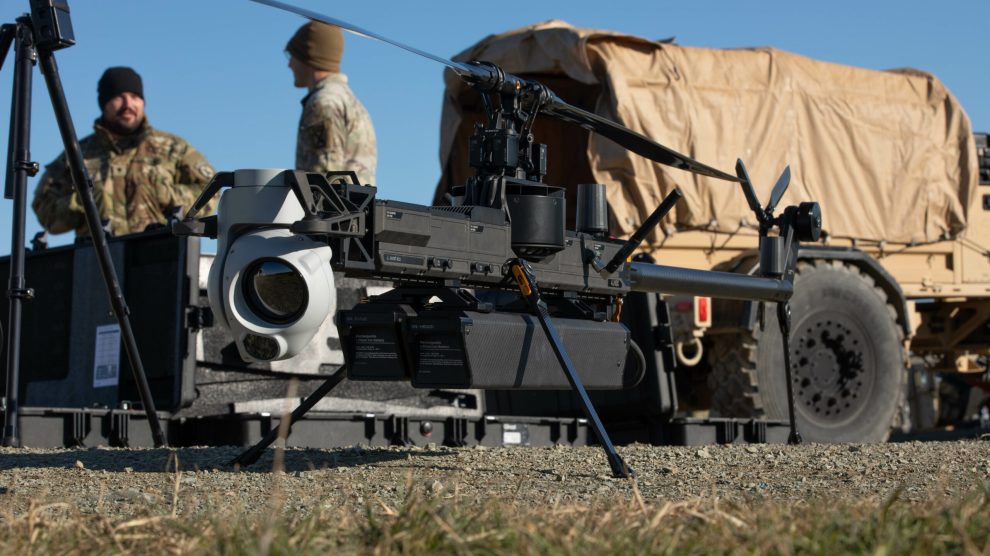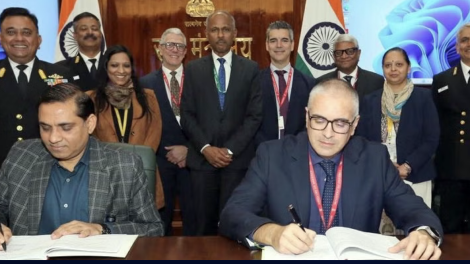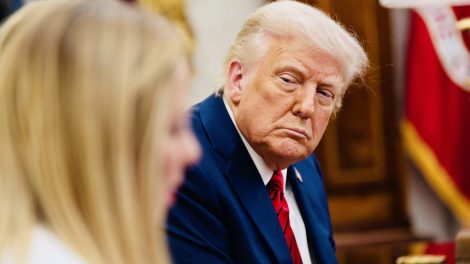Defence tech has become Europe’s fastest-growing sector in 2025. Startups developing drones, autonomy, software, electronic warfare and security technologies have already raised over €3.5 billion this year — placing the sector just behind data centres and AI.
Meanwhile… EU member states aim to mobilise €800 billion in additional defence spending by 2030, widening the space for private capital to accelerate prototyping, testing and deployment cycles.
Why he matters: Giuseppe Lacerenza is a partner at Keen Venture Partners, the Amsterdam-based venture capital firm behind the largest European defence-tech VC fund ever raised.
- He co-leads the strategy that brought Keen to secure the first-ever EIF commitment under the EU’s new €175 million Defence Investment Programme — a milestone that signals Brussels’ shift toward allowing institutional capital into defence innovation.
- Lacerenza has become one of the key voices arguing that Europe must bridge its capability gap by coupling public procurement with risk-tolerant private investment, especially in dual-use and agile technologies exposed by the war in Ukraine.
Q: What gap is this new fund trying to fill in the European defence ecosystem?
A: “Europe has the talent, the technology and the ambition. What was missing, however, was capital and access to launch customers in the defence sector. With the fund, we are filling this gap.”
Q: How is the nature of military capability changing — and what does Ukraine reveal about it?
A: “The way military capabilities are built is changing. Ukraine has demonstrated that, alongside traditional platforms — from aircraft to naval systems — agile, dual-use, and commercial technologies now play a decisive role: distributed sensors, software, autonomy, drones, and electronic warfare. Operational value arises from the integration between the two dimensions, not from their opposition.”
Q: You argue that Europe’s defence industrial base suffers from structural weaknesses. What are they?
A: “In recent years, the European defence industrial base has suffered from underinvestment, fragmentation and a growing technological dependence on the United States. Bringing together the change in military requirements with the need to strengthen industrial autonomy creates space for new specialised financial players.”
Q: Why do private investors matter so much in this environment?
A: “In this context, private capital has a decisive role. Governments will naturally continue to purchase platforms and capabilities. However, to accelerate research, experimentation, and technological development, we need investors who take risks, attract talent, and foster a culture of faster execution. It’s not just about lowering costs, but about increasing the quality of capabilities and drastically reducing development timelines.”
Q: Italy seems to be a priority for Keen Venture Partners. Why?
A: “We look at Italy with great attention, both in terms of institutional investors and founders. For investors, there is a concrete opportunity to support the build-up of Europe’s future capabilities. For founders, we are the partner that helps transform a prototype into an adoptable product in an extremely complex sector.”
Q: After the first closing at €150 million, what comes next?
A: “The fund is operational and we are moving toward a second closing. We have a hard cap of €200 million: following the first closing at €150 million, we have the opportunity to add €50 million in the coming months. The dialogue with institutional investors is very positive: we sense a growing conviction that security and technology are no longer themes that can be postponed.”
The bottom line: Keen Venture Partners’ fund places defence tech squarely at the centre of Europe’s innovation agenda.
- Institutional capital — long reluctant to enter the sector — is now stepping in, enabling faster development cycles and more substantial industrial autonomy.
- For Italy and Europe, the message is clear: security and technology can no longer be deferred.





